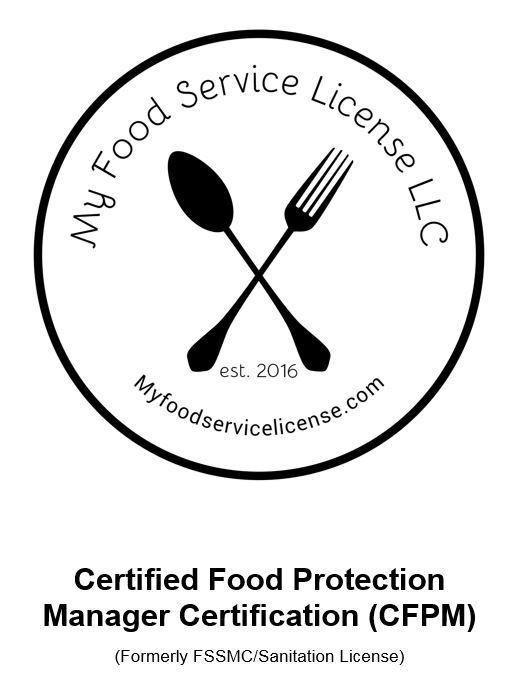What to Expect in the ServSafe Food Manager Certification Examination
What to Expect in the ServSafe Food Manager Certification Examination
Blog Article
Just How to Acquire Your Food Manager Accreditation Quickly
Getting your Food Manager Accreditation effectively calls for a methodical technique, beginning with a detailed understanding of the certain requirements in your area. Picking an accredited training program that lines up with your timetable is important, as is utilizing proper research materials to appropriately prepare for the assessment. After finishing your training, timely scheduling of the test can avoid unneeded hold-ups. Nonetheless, many people neglect essential elements that can further quicken this process, which may dramatically impact their accreditation journey. Checking out these subtleties can eventually improve your path to qualification.
Research Study Accreditation Demands

Ambitious food managers ought to initially identify which qualifications are recognized and requisite in their jurisdiction. This commonly involves reviewing regional legislations and laws that dictate food security methods and the credentials needed for managerial settings. Comprehending the eligibility criteria, such as prior experience in food service or associated fields, is vital.

Select an Effective Educating Program
Selecting the right training program is an essential step after identifying the accreditation requirements in your area. The efficiency of your training can considerably influence your understanding of food security principles, which are crucial for passing the accreditation exam. Begin by looking into programs certified by reputable companies, such as the American National Criteria Institute (ANSI), as these typically stick to industry criteria.
Take into consideration the training format that finest suits your discovering design. Evaluate the curriculum to ensure it covers crucial subjects such as foodborne ailments, hygiene, and safe food dealing with methods.
Confirm that the program consists of detailed materials and resources to assist in your discovering. By very carefully selecting a training program that straightens with your demands, you can improve your preparation for the food supervisor accreditation exam.

Get Ready For the Examination

Make use of research study products that line up with the exam's framework. Several organizations use research overviews and practice tests, which can be indispensable in assessing your understanding and preparedness. Involve in active understanding techniques, such as flashcards or seminar, my review here to boost retention of important info.
Furthermore, think about attending review courses or workshops that provide in-depth insurance coverage of crucial subjects. These sessions commonly include specialist insights that can clarify intricate principles and strengthen your knowledge.
Schedule Your Test Date
Choosing the correct time to arrange your examination date is an important step in the accreditation procedure. Choosing an appropriate day enables you to allocate enough time for you could try this out preparation while stabilizing various other individual and professional dedications. Consider your current work and any forthcoming events that might sidetrack you from focused research study.
Aim to arrange your exam after finishing your preparatory coursework and technique examinations. This ensures you feel great in your expertise and skills. Additionally, take into consideration scheduling your test for a day when you are commonly at your most alert and concentrated, as mental quality can considerably influence performance.
It is additionally smart to examine the availability of examination ports in your area, as some locations might have limited openings. Arranging your exam well beforehand can aid you secure a favored time and area. Moreover, recognize the qualification's expiration plans, as picking a date also much in the future may cause a gap in your knowledge.
Inevitably, the objective is to find a balance between readiness and accessibility, guaranteeing you approach your test with confidence and a solid foundation of understanding.
Maintain Your Accreditation
Preserving your qualification is important for making sure recurring competence and compliance in food management practices. Certification normally calls for revival every 3 to 5 years, relying on the issuing organization. To remain existing, it is very important to understand the specific revival requirements of your certification body, as they may differ.
Proceeding education and learning is a crucial element of maintaining your certification (ServSafe Manager). Getting involved in workshops, workshops, or online training courses associated with food safety, monitoring, and hygiene practices not just enhances your knowledge however may likewise fulfill revival demands. Additionally, several qualification organizations use resources and training sessions to assist you remain notified about the most up to date industry standards and guidelines
Exercising great food administration within your workplace is just as critical. Routinely applying your expertise and skills enhances your proficiency and might offer documents that demonstrates adherence to finest practices.
Finally, monitor your certification's expiration date and any kind of called for documentation for the renewal process - Certified Food Manager Certification. Proactively managing these More about the author aspects will certainly make certain that you maintain your certification without disturbance, permitting you to proceed providing efficient and risk-free food monitoring in your professional atmosphere
Final Thought
Attaining Food Manager Certification successfully demands a calculated strategy that consists of complete study of regional needs, choice of a proper training program, and diligent prep work for the examination. By sticking to these detailed steps, people can successfully browse the accreditation procedure and improve their expert qualifications in food administration.
The path to acquiring food manager qualification is not uniform; it differs significantly depending on local laws and the details accreditation program picked. The efficiency of your training can dramatically influence your understanding of food safety and security principles, which are vital for passing the certification examination. By carefully choosing a training program that straightens with your requirements, you can boost your preparation for the food manager qualification examination.
Detailed preparation is necessary for success on the food manager accreditation examination.Achieving Food Manager Accreditation efficiently requires a strategic technique that includes extensive study of local requirements, choice of an ideal training program, and diligent preparation for the evaluation.
Report this page